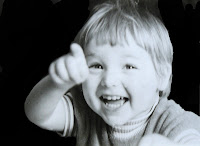This is the second post in my series
Parenting for Everyone, which is my summary of the book of the same name by Simon Soloveychik.
The first chapter of the book can be called The Aims of Parenting. I will divide this chapter into sections according to the major aims of parenting:
- Independence and Freedom
- Love and Conscience
- Happiness and Duty
- Truth
- Spirit
The first aim of parenting is independence. Man as master of his own life.
Education does not automatically lead to independence, unless one develops inner independence.
Independence means freedom. Freedom is determined by what is the source of punishment in one's life. A non-free person is punished for his mistakes by somebody else (parents, boss, the law), while a free person's punishment comes from inside, from his own conscience. For many people freedom is unbearable, for it implies hard inner work. People try to escape freedom, escape life's hard choices. They are too dependent on others, like colleagues, spouse, on the dark forces coming from the depths of the unconscious.
But why, having outer freedom, are some children and teenagers truly free and uninhibited, while others become lax and rakish? The difference lies in how they got their freedom. What's important is not freedom itself, but one's effort to obtain that freedom, the process of self-liberation.
Lack of attention, lack of interest and involvement on the part of adults does not lead to inner freedom, because the child is fighting for himself in the company of peers and that takes all his energy. When a child has to free himself from his parents, he may get outer freedom, but only to exchange it for a different kind of dependence, the dependence on one's peers.
If there is peace and love in the family, if the child feels free from the very beginning, then his desire for self-liberation growth, he strives to become better, stronger, to achieve mastery in what he does.
Striving for self-liberation, supported by adults, results in a truly independent, free, uninhibited person.
Parenting is about learning freedom, learning self-liberation.
When children are little, it is about freedom under supervision. So try to avoid too many "don't do that". Create a safe place for a child to explore the world independently. Let them do their thing in their uninhibited striving for independence. If we help develop freedom at 5, then at 15 the teenager knows how to deal with it.
Here is another very sharp observation: Many of us believe that one can learn "everything about parenting" from one conversation, radio program or a newspaper article. Many believe that there is a prescription for independence, and another one for bravery, and yet another one for honesty. We think that all the faults of a child are akin to a collection of ailments, and that there is a separate pill for each one of them. But no, this is a total misrepresentation of reality.
The rest of this book is devoted to this seemingly simple question: How to bring up an independent person?
Here, for the time being, are some simple rules that we can teach our children to prepare them for a life among peers:
- Don't take things away from others, and don't give away all your possessions. LL: I find the first part of this statement debatable. In my opinion it is ok to borrow other children's stuff for a while and to give away your own stuff in the spirit of sharing.
- Give if asked, try to defend your stuff if they attempt to take it away.
- Do not fight if not offended.
- Do not feel offended without a reason.
- Do not offend anyone.
- If they ask you to play - go and play. If they don't ask, ask them yourself, this is not a shame.
- Do not tease, do not sulk, never ask twice.
- Do not cry about your grades, be proud. Do not argue with teachers about grades and do not resent the teacher because of them.
- Do not give away your friends behind their backs.
- Do not be too dirty or too clean, children like neither.
- Say this more often: let's be friends, let's play, let's hang around together, let's go home together.
- Remember, you're not the best, nor the worst. Go to school and may you enjoy it! I'll be waiting and thinking about you. Be careful when crossing the road, don't hurry!




